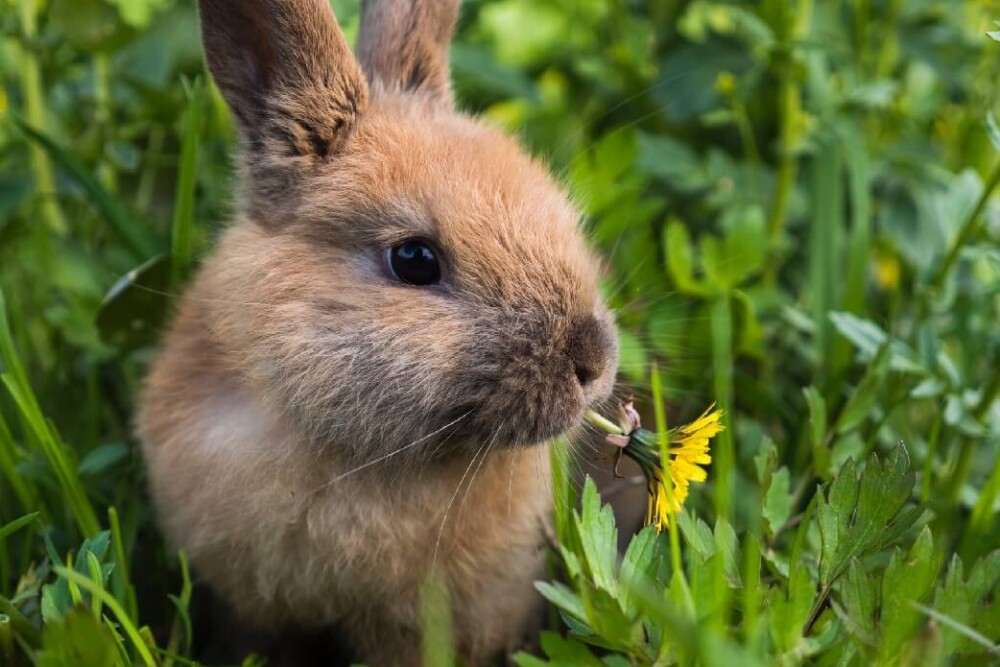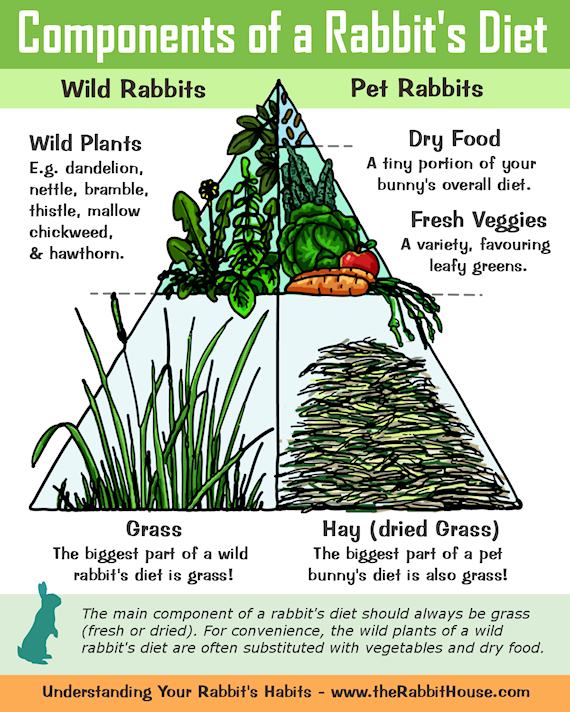
Aromatic Delights: Enhancing Your Rabbit’s Diet with Dried Herbs and Flowers
Introduction
Rabbits, with their endearing personalities and insatiable appetites, bring joy to countless homes. As responsible rabbit owners, providing a balanced and enriching diet is paramount to their well-being. While fresh hay, vegetables, and high-quality pellets form the cornerstone of a rabbit’s diet, introducing dried herbs and flowers can offer a delightful and nutritious twist. This article explores the benefits of incorporating dried botanicals into your rabbit’s diet, offering guidance on selection, preparation, and responsible feeding practices.
The Nutritional Powerhouse of Herbs and Flowers
Dried herbs and flowers are more than just fragrant additions to your rabbit’s meal; they are packed with essential nutrients, vitamins, and antioxidants that can significantly contribute to their overall health.
Vitamins and Minerals
Many herbs and flowers are rich in vitamins A, C, and K, as well as minerals like calcium, potassium, and magnesium. These nutrients play vital roles in maintaining healthy vision, immune function, bone strength, and overall vitality.
Fiber
Fiber is essential for a rabbit’s digestive health. Dried herbs and flowers provide an extra source of fiber, aiding in proper gut motility and preventing common issues like GI stasis.
Antioxidants
Antioxidants combat free radicals in the body, protecting cells from damage and reducing the risk of chronic diseases. Herbs and flowers such as dandelion, calendula, and chamomile are rich in antioxidants.
Anti-inflammatory Properties
Certain herbs, such as chamomile and lavender, possess anti-inflammatory properties that can help alleviate pain and inflammation associated with arthritis or other conditions.
Digestive Support
Herbs like peppermint and dill can aid digestion, reduce bloating, and relieve gas. These herbs can be particularly beneficial for rabbits prone to digestive upset.
Choosing the Right Herbs and Flowers
Selecting the right herbs and flowers is crucial to ensure your rabbit’s safety and well-being. Not all plants are safe for rabbits to consume.
Safe Options
Here are some popular and safe choices:
- Dandelion: Rich in vitamins, minerals, and antioxidants. Both the leaves and flowers are edible.
- Chamomile: Known for its calming and anti-inflammatory properties.
- Calendula: Offers anti-inflammatory and wound-healing benefits.
- Rose: Provides vitamin C and antioxidants. Both petals and rosehips (without seeds) are safe.
- Lavender: Has calming and antiseptic properties.
- Peppermint: Aids digestion and relieves gas.
- Basil: Rich in vitamins and antioxidants.
- Parsley: High in vitamins A, C, and K. (Offer in moderation due to calcium content).
- Dill: Supports digestion and relieves bloating.
- Cilantro: Provides vitamins and antioxidants.
- Plantain: Soothes inflammation and aids digestion.
Plants to Avoid
Avoid these toxic plants:
- Buttercups: Contain toxins that can irritate the digestive system.
- Lillies: Highly toxic and can cause kidney failure.
- Foxglove: Contains cardiac glycosides that can lead to heart problems.
- Rhubarb: The leaves contain oxalic acid, which is toxic to rabbits.
- Avocado: Contains persin, which is toxic to rabbits.
- Nightshade: Contains toxic alkaloids.
Sourcing
- Grow Your Own: Growing your own herbs and flowers is the safest way to ensure they are free from pesticides and herbicides.
- Organic Stores: Purchase dried herbs and flowers from reputable organic stores or suppliers.
- Avoid Garden Centers: Be cautious about buying from garden centers, as plants may have been treated with chemicals.
Preparing Dried Herbs and Flowers
Proper preparation is essential to ensure your rabbit’s safety and maximize the nutritional benefits.
Drying
- Air Drying: The simplest method is to air dry herbs and flowers. Hang small bunches upside down in a cool, dry, well-ventilated area until completely dry.
- Dehydrator: A food dehydrator can speed up the drying process. Follow the manufacturer’s instructions for herbs and flowers.
- Oven Drying: You can also use an oven on the lowest setting with the door slightly ajar. Check frequently to prevent burning.
Storage
Store dried herbs and flowers in airtight containers in a cool, dark, and dry place. Properly stored herbs can last for several months.
Introducing Herbs and Flowers
Start Small
Introduce new herbs and flowers gradually. Start with a small pinch mixed into your rabbit’s hay or pellets.
Observe Your Rabbit
Pay close attention to your rabbit’s behavior and droppings. If you notice any changes in appetite, digestion, or overall health, discontinue use and consult a veterinarian.
Variety
Offer a variety of herbs and flowers to provide a balanced range of nutrients and prevent boredom.
Quantity
Dried herbs and flowers should be offered as a supplement to your rabbit’s primary diet, not as a replacement for hay, vegetables, or pellets. A small handful per day is generally sufficient.
Creative Ways to Offer Herbs and Flowers
Mix with Hay
Sprinkle dried herbs and flowers into your rabbit’s hay rack or litter box to encourage foraging.
Create Forage Toys
Fill cardboard tubes or toilet paper rolls with hay and herbs for a fun and enriching activity.
Herbal Treats
Mix dried herbs and flowers with a small amount of mashed banana or unsweetened applesauce to create homemade treats.
Benefits Beyond Nutrition
Enrichment
Adding dried herbs and flowers to your rabbit’s environment provides mental stimulation and encourages natural foraging behaviors.
Aromatherapy
The aroma of certain herbs, like lavender and chamomile, can have a calming effect on rabbits, reducing stress and anxiety.
Bonding
Offering herbs and flowers as treats can strengthen the bond between you and your rabbit.
Potential Risks and Precautions
Allergies
Although rare, rabbits can be allergic to certain herbs and flowers. Monitor your rabbit for any signs of allergic reaction, such as skin irritation, sneezing, or difficulty breathing.
Overfeeding
Offering too many herbs and flowers can lead to digestive upset or nutritional imbalances. Always feed in moderation.
Medication Interactions
Some herbs can interact with medications. If your rabbit is on medication, consult your veterinarian before introducing new herbs.
Pesticides
Always ensure that the herbs and flowers you offer are free from pesticides and herbicides.
Conclusion
Incorporating dried herbs and flowers into your rabbit’s diet can provide a wealth of nutritional benefits, enrichment, and enjoyment. By selecting safe options, preparing them properly, and introducing them gradually, you can enhance your rabbit’s health and well-being. Always observe your rabbit for any signs of adverse reactions and consult with a veterinarian if you have any concerns. With a little knowledge and care, you can create a delicious and nutritious botanical buffet for your beloved bunny.

